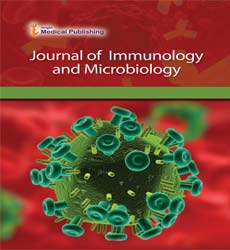How do Bacterial Vaccines Protect Allergy Patients
Abstract
In a study with patients between 5-50 years old, more women than men, they have Allergic Rhinitis to mites, all elevated IgE dosage. Who improved when used bacterial vaccines before starting the winter, they reduced the use of corticosteroids and anti-histamines. The reason for this was that they were protected with bacterial lysates. However, together with us bacterial vaccines were recommended start a diet suppressing milk and derivatives, to reduce intestinal inflammations and decrease abundant nasal discharge. Although not all of them complied with the diet, they only continued with the bacterial vaccine for 30 days in the autumn, before the winter season begins. All the patients who have received bacterial vaccines got better with low nasal symptoms such as sneezing, itchy nose, and rhinorrhoea. Only some need corticosteroids, and nasal spray in the winter and some of them need Montelukastand one patient took antibiotics. But who got better were those who reduced or eliminated milk and derivatives consumption during their treatment and after that. So it is important to use bacterial vaccines in allergic rhinitis to reduce symptoms and also it is important to how the patients eat to decrease intestinal inflammations and allergic rhinitis.
Open Access Journals
- Aquaculture & Veterinary Science
- Chemistry & Chemical Sciences
- Clinical Sciences
- Engineering
- General Science
- Genetics & Molecular Biology
- Health Care & Nursing
- Immunology & Microbiology
- Materials Science
- Mathematics & Physics
- Medical Sciences
- Neurology & Psychiatry
- Oncology & Cancer Science
- Pharmaceutical Sciences
